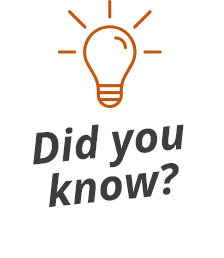We know you can do it all, but when it comes to your pregnancy, you don’t have to. Whether you just found out you’re pregnant or you’re halfway through, let’s take a look at who you might meet during your pregnancy and the important role they could play on your care team.
Obstetricians (OB), midwives, case managers, doulas, chiropractors, lactation specialists, maternal-fetal medicine doctors, mental health providers, even your dentist, and others, could all play important roles on your pregnancy care team.
When you’re expecting, it’s an exciting time and a time of great change! You will have so many questions. Find a health care team that you trust and can partner with early on. Having a team that can help you through your new journey is important to ensure the best health for you and your baby.
– CHPW Medical Director, Dr. Kyung L.
It’s impossible to know what your pregnancy might bring, but as a CHPW member, know you have a team to support you and your baby at every turn.
First trimester
Every pregnancy is different. Your second pregnancy may not be the same as your first, and your experiences will be uniquely your own. Getting care early and connecting to the care that best meets your needs now, is important.

The first provider you’ll meet is likely the provider you will see most often during your pregnancy. Your primary prenatal care provider could be your family doctor, obstetrician-gynecologist, midwife, or a combination of those providers.
If you have a chronic health condition, are over a certain age, are under a certain age, or had a complicated pregnancy in the past, you may work with more than one prenatal care provider to get the best care possible. Learn more about prenatal care providers.
For example, if you have diabetes, you may work with an obstetrician who has experience with treating pregnant people with diabetes. And, other medical doctors who specialize in diabetes care, like an endocrinologist or diabetologist. A registered dietician may also be part of your care team, to help with meal planning.
Depending on your needs, your prenatal care provider might recommend a case manager or connect you with a hospital social worker. Case managers work with you to define and meet health goals that you decide on together.
CHPW Case Manager Angie T. has been a Women’s Health nurse for 23 years. She’s worked as a nurse in OB clinics, labor and delivery, lactation consulting, post-partum support, and fertility.
She says, “I have a passion for supporting pregnant and postpartum women as they transition through the changes of pregnancy to motherhood.”
Like Angie, many CHPW Case Managers have real experience. They have worked as nurses, newborn care specialists, or social workers. As your case manager, they support the relationship between you and your doctors and work with you throughout your pregnancy. They can also help you build your care plan and find other providers you may need, like a doula or lactation specialist.
If you are a CHPW member, you can start working with a specialized pregnancy Case Manager as soon as you find out you’re pregnant through the Healthy You, Healthy Baby program. They can help you build your pregnancy care plan, talk to you about milestones, answer questions, and help you communicate with your doctors.
Already a member? Sign up for Healthy You, Healthy Baby
If you’re struggling with substance-use disorder, addiction, having trouble quitting smoking, or are worried old habits might come back during pregnancy, a behavioral health provider may help. Getting support as soon as you find out you’re pregnant is the best thing you can do for yourself and your baby.
Find out more about building your CHPW care team
Second trimester
In your second trimester, you may have a little bit more energy and be ready to think about preparing for delivery. This is a good time to search for your pediatrician (baby’s doctor), look into childbirth classes, and think about your goals for feeding your baby.

If you live in Washington state, low-cost and free childbirth classes may be offered near you.
If you are thinking about chest or breastfeeding, you may consider getting in touch with your health plan to find out if breast pumps are covered. If you’re a CHPW member, you can up to 90 days before childbirth.
During this time, it may also be a good idea to meet with a mental health or behavioral health provider if you don’t already have one. They can help you make a plan for managing new or current feelings you may have.
It’s common to experience depression, anxiety, or challenging thoughts during your pregnancy and well after delivery. It may be a counselor, therapist, psychologist, behavioral health provider, psychiatric nurse practitioner, or a social worker.
You may also meet your doula for the first time, if you have one, during your second or third trimester. Doulas provide coaching and emotional support through the birthing process and after. They’ll help you prepare for labor and delivery, and will be next to you during childbirth, alongside the doctor or midwife who is responsible for delivery and monitoring your health.
If your insurance does not cover Doula services, there may be programs at your local hospital or in your community that can help you pay for Doula services.
Preparing for what’s next
In your third trimester, during delivery, and after your baby is born, you’ll have more people to meet. When you’re connected to your care team, there will be someone looking out for your health every step of the way. Look out for part 2, The people you meet along your pregnancy journey: Your 3rd trimester, birth, and after, to see who you may meet in your final trimester and who will be there to help you welcome your little one.
Learn more in CHPW’s Health Library
- Watch this 3-minute video: Learning about doctors and midwives
- Tips to support your partner during their pregnancy
- Find more about anxiety during pregnancy
- Visit CHPW Apple Health’s Pregnancy Care Resource Hub



